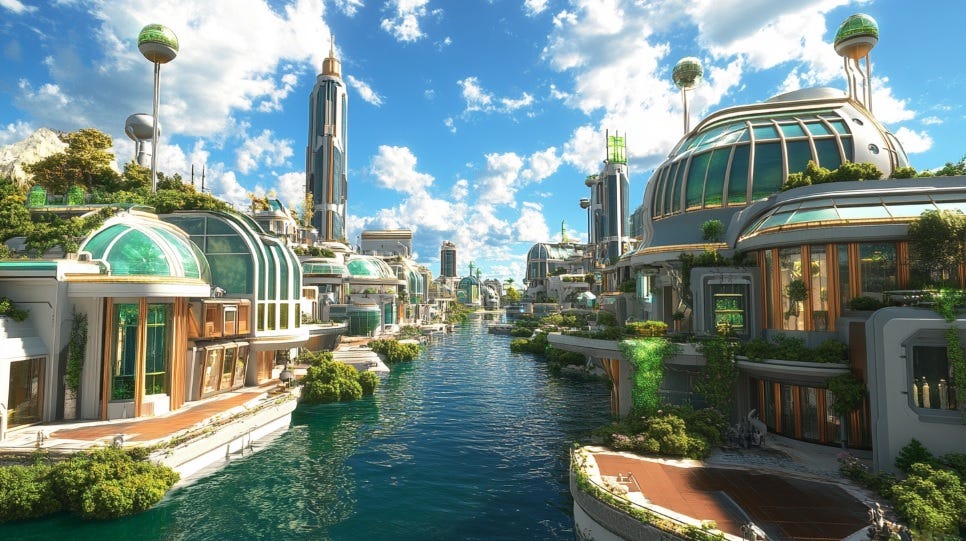📉 Well, they ran the numbers on degrowth — and it's not good
Do people in rich countries want to live like they do in India?
Advocates of degrowth argue, essentially, that humanity can have a better, more fulfilling existence with less stuff. Wellbeing over GDP growth. Simple enough. All that needs to happen is intentionally downsizing production and consumption so all our economic activity fits within Earth's supposed ecological limits. (Of course, rich nations have a special burden to reduce their resource use to ensure global equity.)
Suppose the degrowth notion appeals to you. Wonderful, fine, whatever. But don’t think that on the other side of that anti-technocapitalist, anti-abundance vision is some solarpunkian, green-dream utopia where human habitation is harmoniously fused with ecological principles. You won't get a world that looks like the above image.
What would a degrowth world really look like? A key part of the degrowth scenario gets put to the test in “The labour and resource use requirements of a good life for all” by sustainability researchers Chris McElroy (University of Vermont) and Daniel W. O’Neill (University of Barcelona). They offer a data-driven look at reducing consumption to meet basic needs, a core degrowth proposal.
Keep reading with a 7-day free trial
Subscribe to Faster, Please! to keep reading this post and get 7 days of free access to the full post archives.


